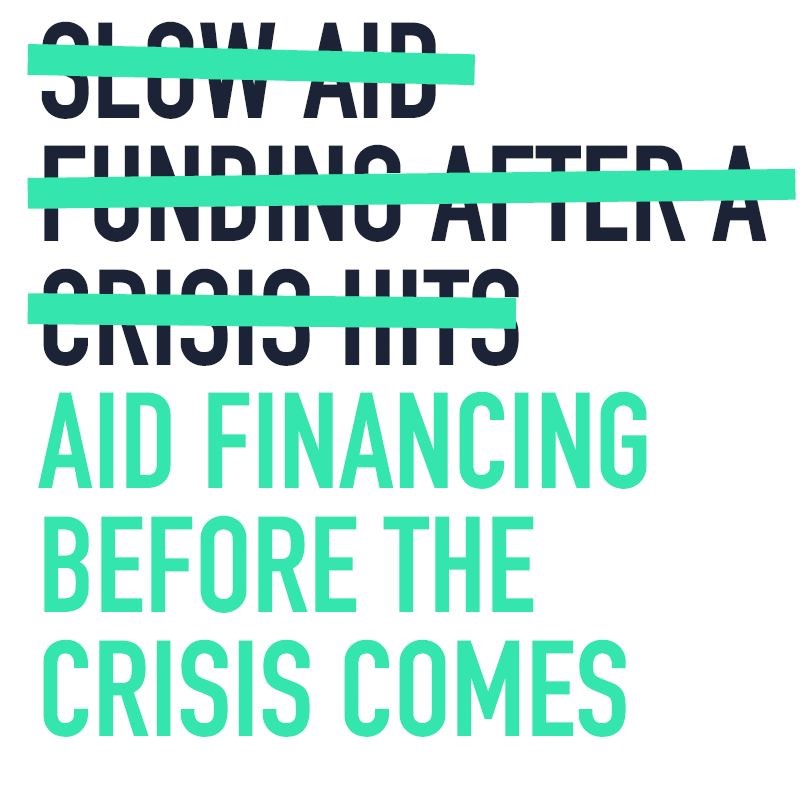What early action will mean for the Start Network in 2020
We are three months into the year and already we have witnessed catastrophic bushfires in the Australian outback, record-breaking floods in the UK, and drought in Eastern and Southern Africa. If nothing else, 2020 is showing us that we urgently need to adopt new approaches to disaster management. We need to act faster and earlier to predict disasters. We need viable, robust forecasts that allow us to do this. We need to build stronger partnerships across private and public sector organizations to mount innovative and efficient responses. And we need to do all of this while protecting the gains and progress in development that have been achieved across the global South in recent decades. So, 2020 will need to be a year of bold, impactful humanitarian action. What does that mean for the Start Network?
The Start Network will focus on protecting more people at risk of climate-related crises. ARC Replica is one example where this effort is well underway. In the last edition of this newsletter, we announced that we were receiving the largest payout ever received by NGOs in advance of a crisis, in this case, drought. Since then, we have hosted a kick-off meeting in Dakar together with the government and NGOs. We have completed targeting in the worst affected regions, identifying which families are most vulnerable to drought. As of this month (March), we will begin the implementation of 3 key activities: cash transfers, enriched flour distributions, and hygiene and nutrition education programming. The aim is for implementation to be completed before the effects of the humanitarian drought begin to be felt in June of this year. Throughout the implementation of these activities, we will be closely monitoring the impact of our interventions – highlighting and sharing best practices, gathering lessons learned through workshops following provision of assistance, and integrating these into the next phase where possible. We are also working in a broader evaluation of ARC Replica as a mechanism – assessing to what extent the use of micro-insurance can help humanitarians and governments be better prepared for increasingly frequent and severe climate events. This more extensive research piece will be published towards the end of 2020.

Photo Credit: Start Network
Alongside the use of macro-insurance, the Start Network is also working to develop and establish disaster risk financing programmes in Pakistan and DRC. These will allow NGOs to act earlier, with pre-positioned funding and with pre-agreed contingency plans in advance of droughts, floods, heatwaves, and possibly disease.
We will also be releasing an evaluation report on Start Network’s anticipation work. In Nigeria, in 2019, it became apparent that gender dimensions in early warning information coming from community members were worthy of further investigation. In the lead up to national elections in Nigeria, men reported hearing and witnessing signs of incitement, aggression and division in public places such as buses, within the community and from local politicians. In contrast, women reported hearing information from secondary sources, including social media and by observing youths. This light-touch comparison of gendered perspectives in Nigeria has indicated the importance of both implementing and evaluating anticipatory projects with a gendered approach. We will be exploring these early indications on gender-sensitive early action, and where possible integrating the recommendations made in this soon-to-be-released report in our day to day operations.
Finally, we are developing an overarching financial infrastructure for the Start Network. The Start Financing Facility (SFF) will maximize and leverage funding, layer financial tools and pool risks, and, most importantly, allow frontline humanitarians around the world to get ahead of crises. Upstream, donors will be able to deploy money at scale in a timely, predictable and efficient way to NGOs. In 2020, we will be sharing the prototype of this overarching financial system.
Some of these innovations will take time to be developed – others can be accessed at present, or are being rolled out as we write. But one thing is for sure: for Start Network, 2020 will be about earlier humanitarian action, higher quality disaster anticipation and scalable risk financing initiatives.
Written Contribution by Start Network
